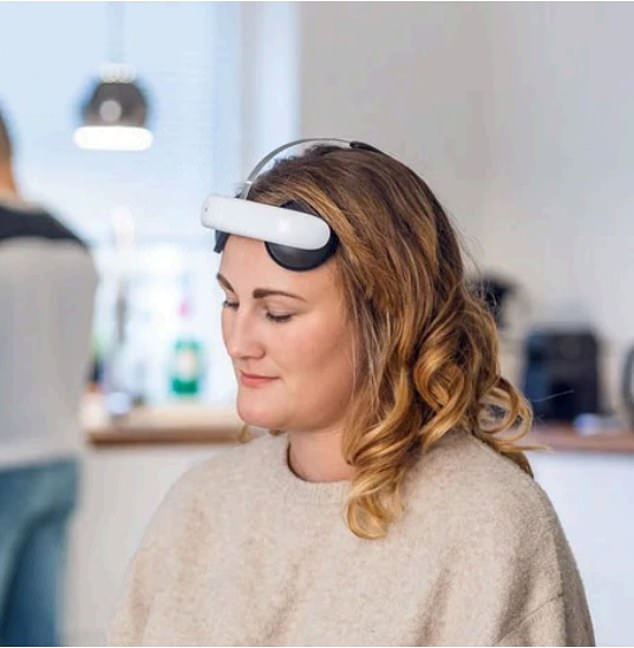A brain-zapping headset could help treat depression at home, research suggests.
Researchers found that if patients used the device for 30 minutes a day, they were three times more likely to overcome the condition.
This mental illness, also known as major depressive disorder, affects around one in six adults in the UK and its prevalence appears to be increasing.
Current treatments include antidepressants and psychotherapy, but more than one-third of people diagnosed with the disorder never fully recover.
An international team led by researchers from King’s College London (KCL) investigated whether brain zapping could work as a treatment.
Researchers found that if patients used a device called Flow FL-100 for 30 minutes a day, they could triple their chances of overcoming the condition.

This mental illness, also known as major depressive disorder, affects around one in six adults in the UK and its prevalence appears to be increasing. (Stock Photo)
The company’s headset, called the Flow FL-100, has two electrodes that deliver a weak direct current to the scalp.
It is already commercially available and targets brain regions associated with decreased activity in patients with depression.
A total of 174 patients took part, half of whom received “tingling” brain stimulation. The other half, the “control” group, wore the device but only applied a short electrical current to mimic the sensation.
Participants used the device at home while being monitored by scientists via video link.
Treatments lasted 30 minutes at a time, with patients receiving five sessions per week for the first three weeks and three sessions per week for the next seven weeks.
The analysis revealed that the treatment reduced all symptoms of depression in more than half of the patients by the end of the trial.
And treated patients were up to three times more likely to achieve remission compared to the control group.
The research team said the findings suggest that at-home brain stimulation may serve as a first-line treatment for patients with depression.

An international team led by researchers from King’s College London (KCL) investigated whether brain zapping could work as a treatment.

Current treatments include antidepressants and psychotherapy, but more than a third of people diagnosed with the disorder do not fully recover. (Stock Photo)
Professor Cynthia Hu, lead author of the study, said: “The burden of depression is felt most acutely by the 280 million people around the world who are currently managing their symptoms.”
“Although combinations of antidepressants and therapy have generally proven effective for many people, drug treatments have side effects and can be confusing for some people.
“Our research [the device] It is a first-line option that has the potential to help those in need. ”
Commenting on the findings, Alan Young, Director of the Center for Affective Disorders at KCL’s Institute of Psychiatry, Psychology and Neuroscience, said: “These findings are very exciting and poised to have a significant impact on the future treatment of depression.”
“Major depression is undertreated worldwide, and current treatments have significant limitations.
“This study shows that this treatment is effective and well-tolerated, providing an important new option for patients who currently struggle to find options that work for them. It is something.”
The results of this study were published in the journal Nature Medicine.
